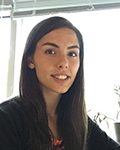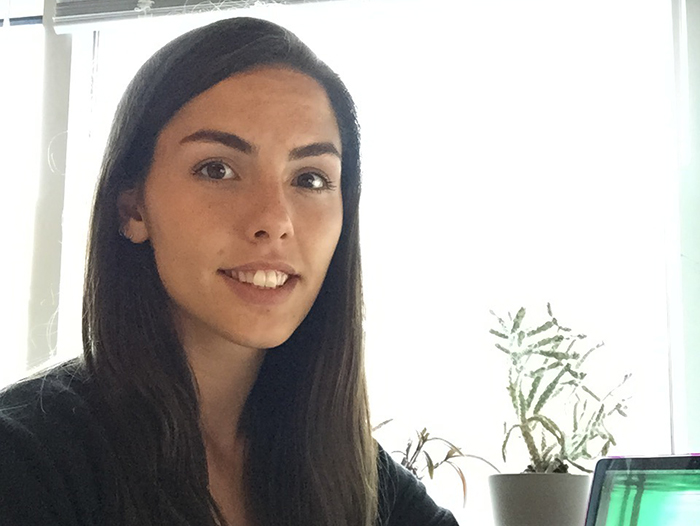We’re taking time over the following weeks to get to know the members of the GSA’s Early Career Scientist Committees. Join us every week to learn more about our early career scientist advocates.

Jaclyn Bubnell
Diversity Subcommittee
Cornell University
Research Interest
Genetic variation provides a species opportunities to adapt to its environment. I’m interested in discovering genetic variants responsible for adaptation and understanding their functional consequences for the organism. In doing so, I hope to better understand how species adapt to changes in their environment. Because the fruit fly is an excellent tool for studying evolution, my graduate work uses fruit flies to ask these questions. I’m specifically interested in understanding the evolution of germline stem cell genes. In the fly and other animals, germline stem cells are found in the gonads and eventually differentiate to produce sperm and eggs. Although even a single mutation in one of the genes that control germline stem cell development can result in sterility, we find that many of these genes are accumulating adaptive mutations. I’ve been working to identify the environmental pressures that have driven the selection of these mutations and the effect of these changes on germline stem cell gene development.
As a PhD-trained scientist, you have many career options. What career paths interest you most?
As a scientist, I’m most excited when I’m working with others to come up with innovative ideas to solve new research problems. I enjoy the energy that comes from different minds working together to make new discoveries. I see myself in a career where I can help others develop their strengths, get them excited about the science we’re doing, and work together to understand the natural world a little better. I also believe in sharing my knowledge with others and making it accessible to as many people as I can reach. Ideally, I’m aiming for a research-intensive role where I can both lead a research group and teach.
In addition to your research, how else do you want to advance the scientific enterprise?
I believe one goal we should be working towards is equalizing access to educational, scientific, and emotional support resources. Resources like quality science education or access to a community that reflects your life experiences and offers support and advice are not available to all. Science can be inaccessible to many people. We end up both losing potential scientists and disengaging the public from our work. I would like to increase access to these resources through mentoring and public outreach.
Successful mentoring and public outreach help attract and retain passionate, diverse individuals who see and tackle scientific problems from unique perspectives. Through mentoring, I want to cultivate an environment in which people have the opportunity to nurture their strengths throughout the research process. When people feel positive and empowered, they have more energy to focus on doing creative science. Through public outreach, I want to both increase scientific awareness and attract more diverse minds to science. Together, mentoring and public outreach make careers in science more accessible and inclusive, opening opportunities for young, passionate scientists to enter careers that appeal to their interests. We as a community can benefit from the unique perspectives and experiences diversity brings to innovative problem solving.
As a leader within the Genetics Society of America, what do you hope to accomplish?
One way we can make progress towards equalized resources is to increase mentorship opportunities for scientists from underrepresented groups. Mentors provide critical career-building tools, give guidance, and help mentees become part of a community within their field. Access to an inclusive community gives people a sense of belonging and provides a space for them to address the issues that affect their ability to do science. However, access to mentors with similar life experiences and identities is limited for many marginalized groups, and consequently, late-career scientists from these groups often take on larger mentoring burdens. It can be intimidating to navigate a career path without a community that represents your needs and without resources that others may already have. This often results in people leaving a career track they were interested in pursuing, doing a disservice both to individuals from underrepresented groups and to the advancement of science.
Within the GSA, I will be working with the other members of the diversity subcommittee to build more mentoring resources that facilitate community building for early career scientists. By building and broadening our mentorship network, we can encompass a wider range of life experiences, enhancing the developmental opportunities for our community. By creating an environment that is welcoming, supportive, and addresses the needs of all of its members, we can build the diverse community we need to do the best science.
Previous Leadership Experience
- Head Undergraduate Teaching Assistant—Wells College
- President, Cornell ManyMentors Chapter—Cornell University
- Mentor for two undergraduate researchers—Cornell University
- Instructor, 5th Grade Biochemistry mini-course—GRASSHOPR, Cornell University
- Co-coordinator, Life Skills for Genetics, Genomics, and Development student series—Cornell University
Contact
- Aquadro Lab
- Twitter: @jackiebubnell































